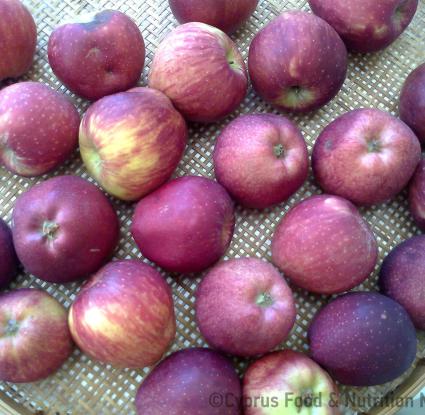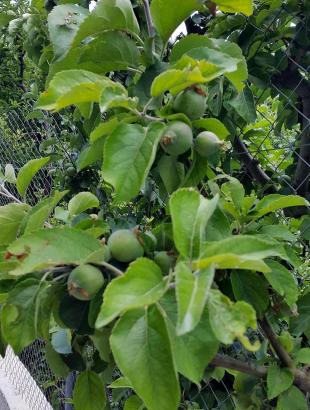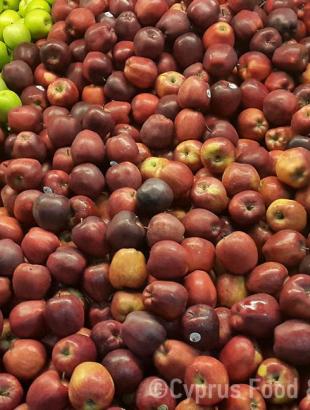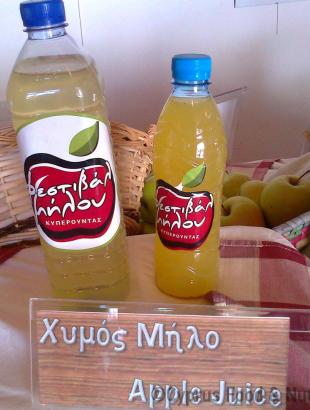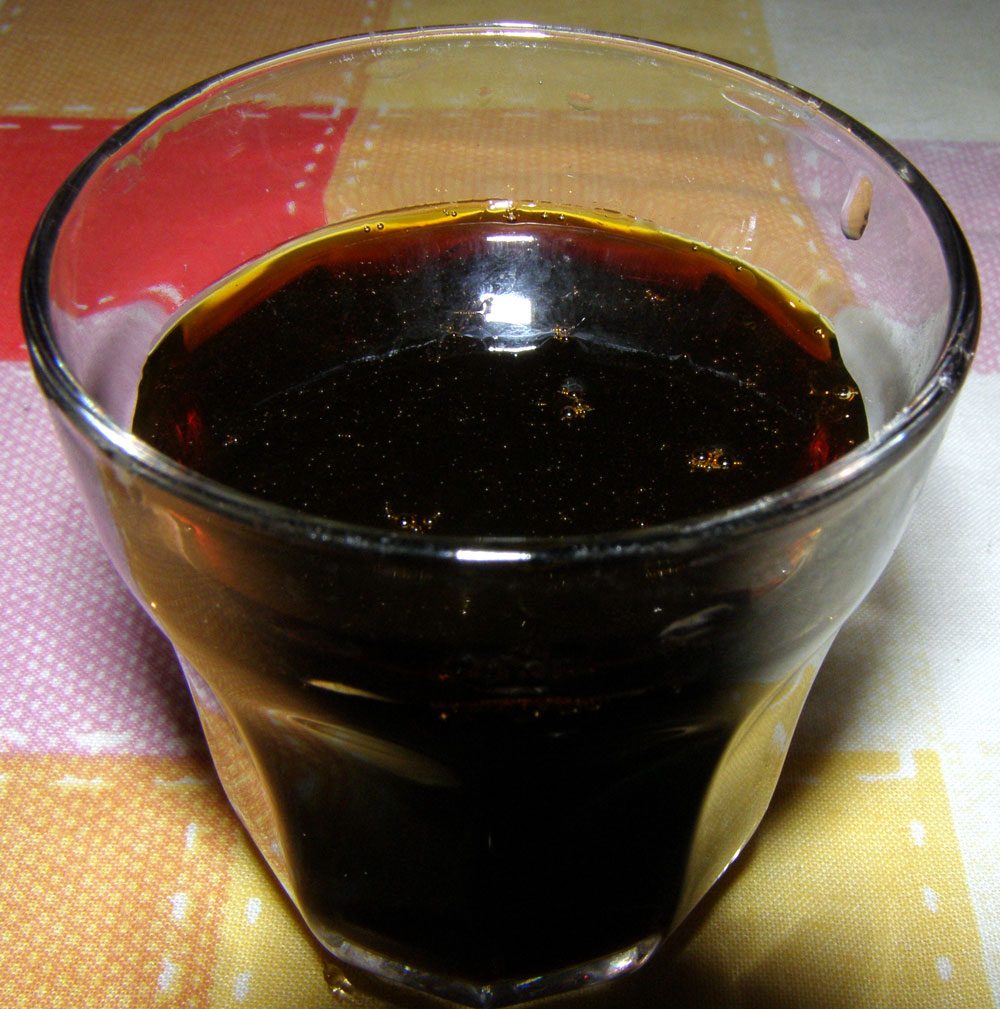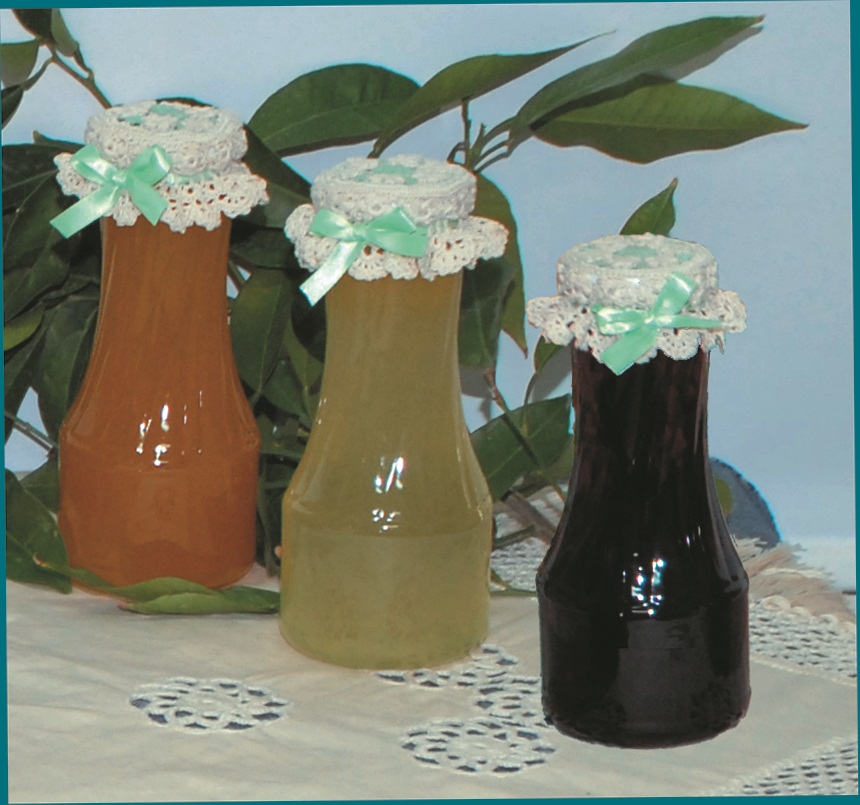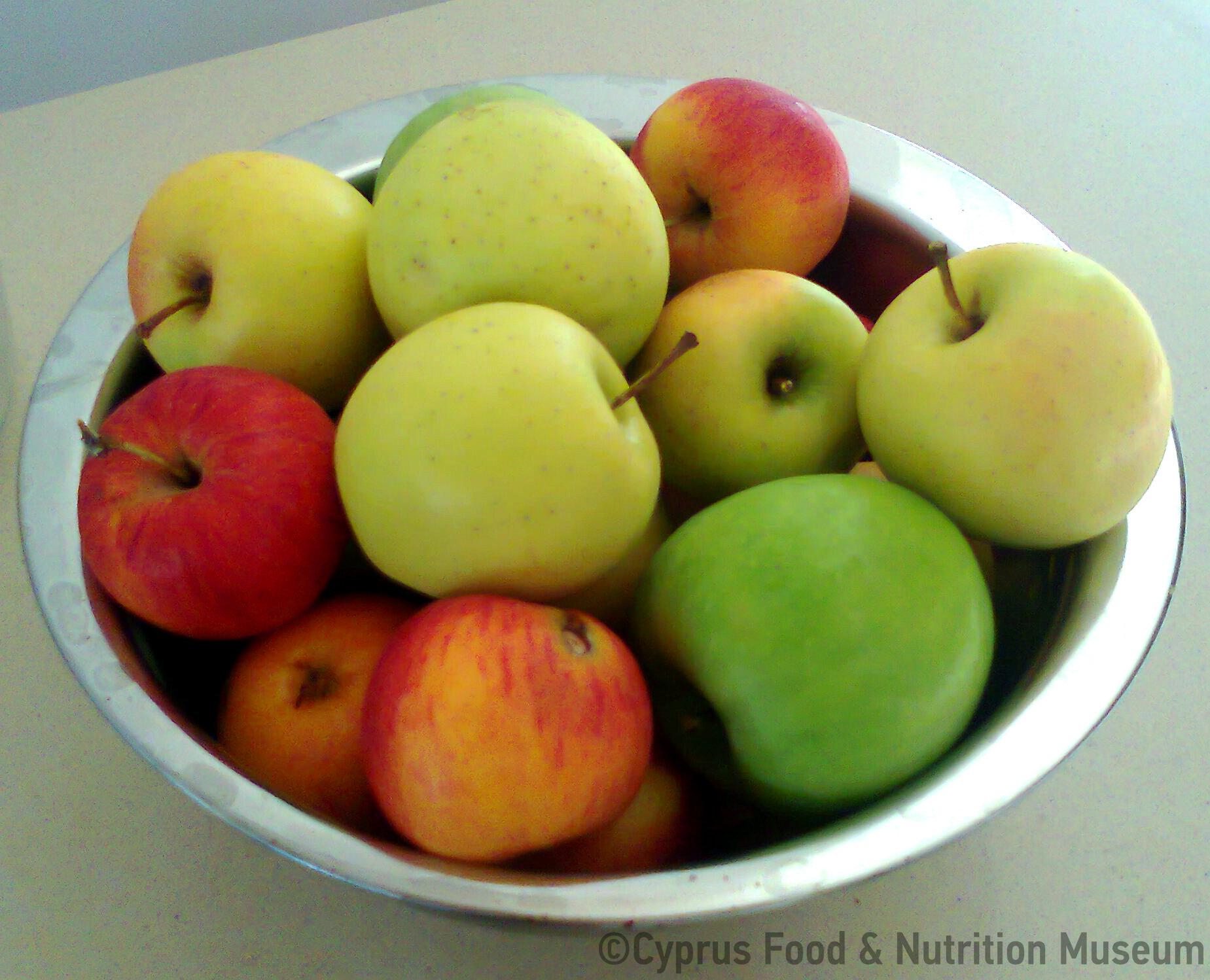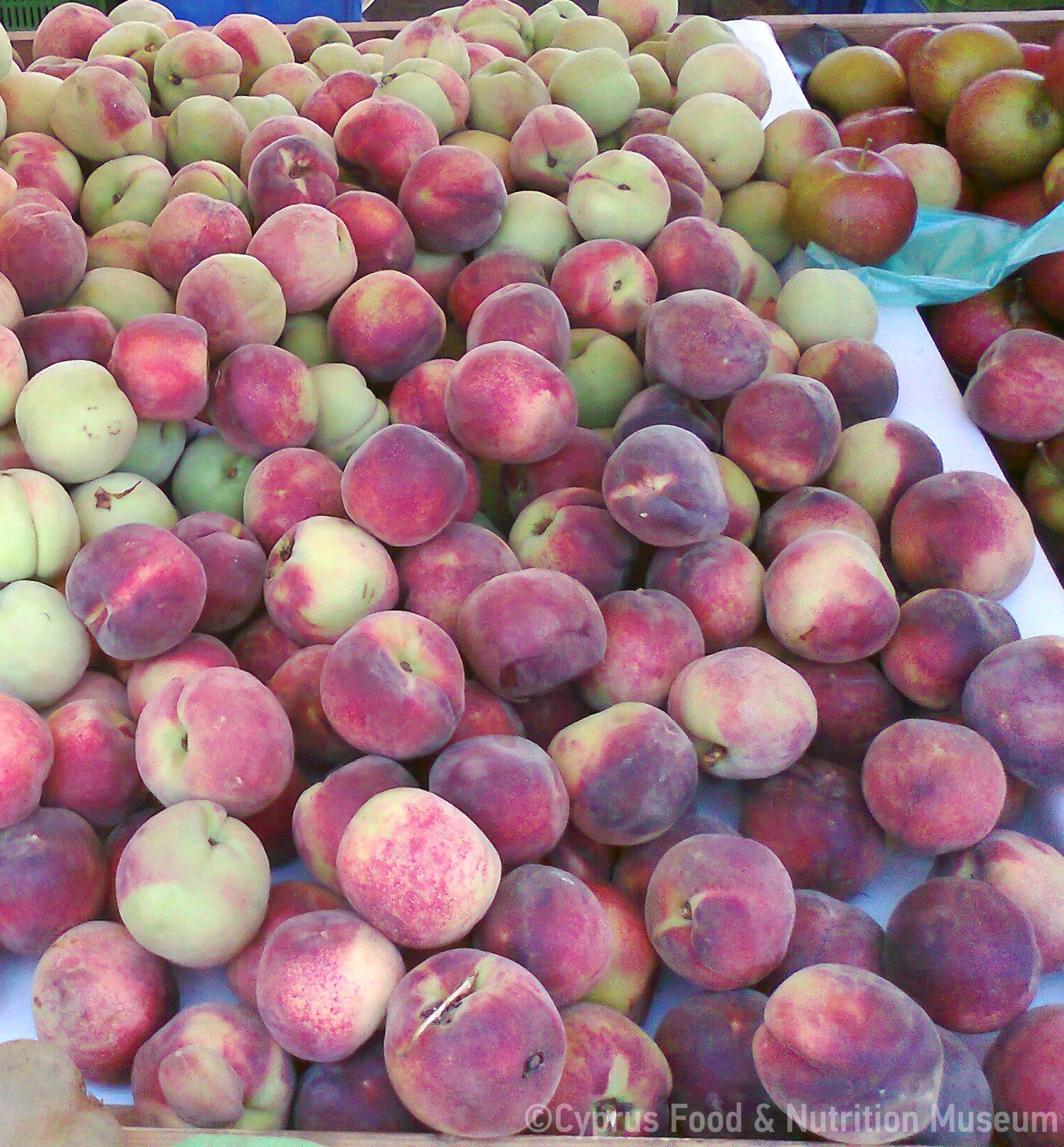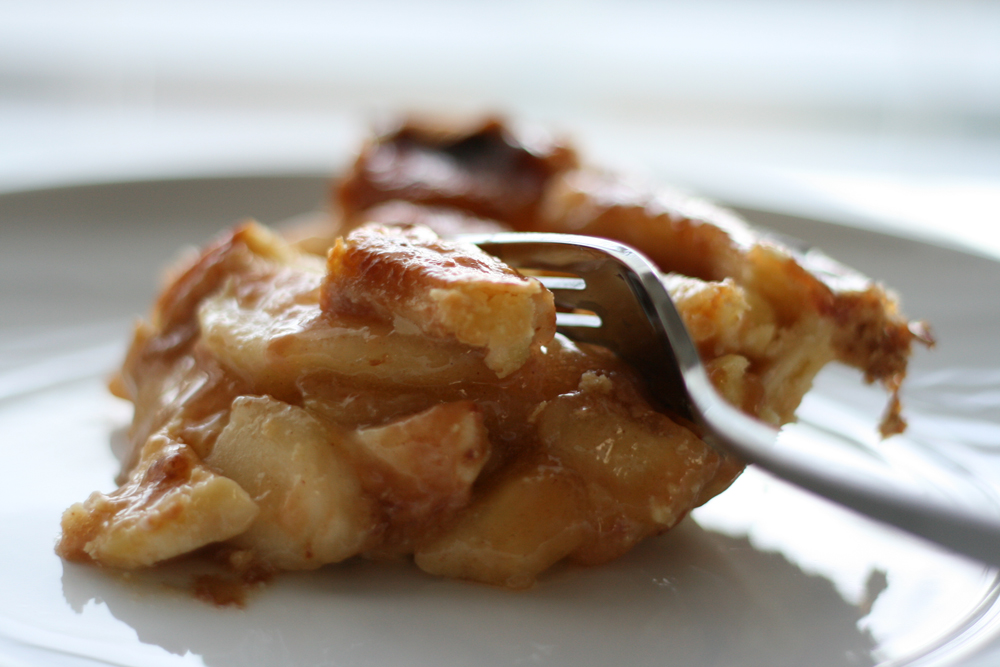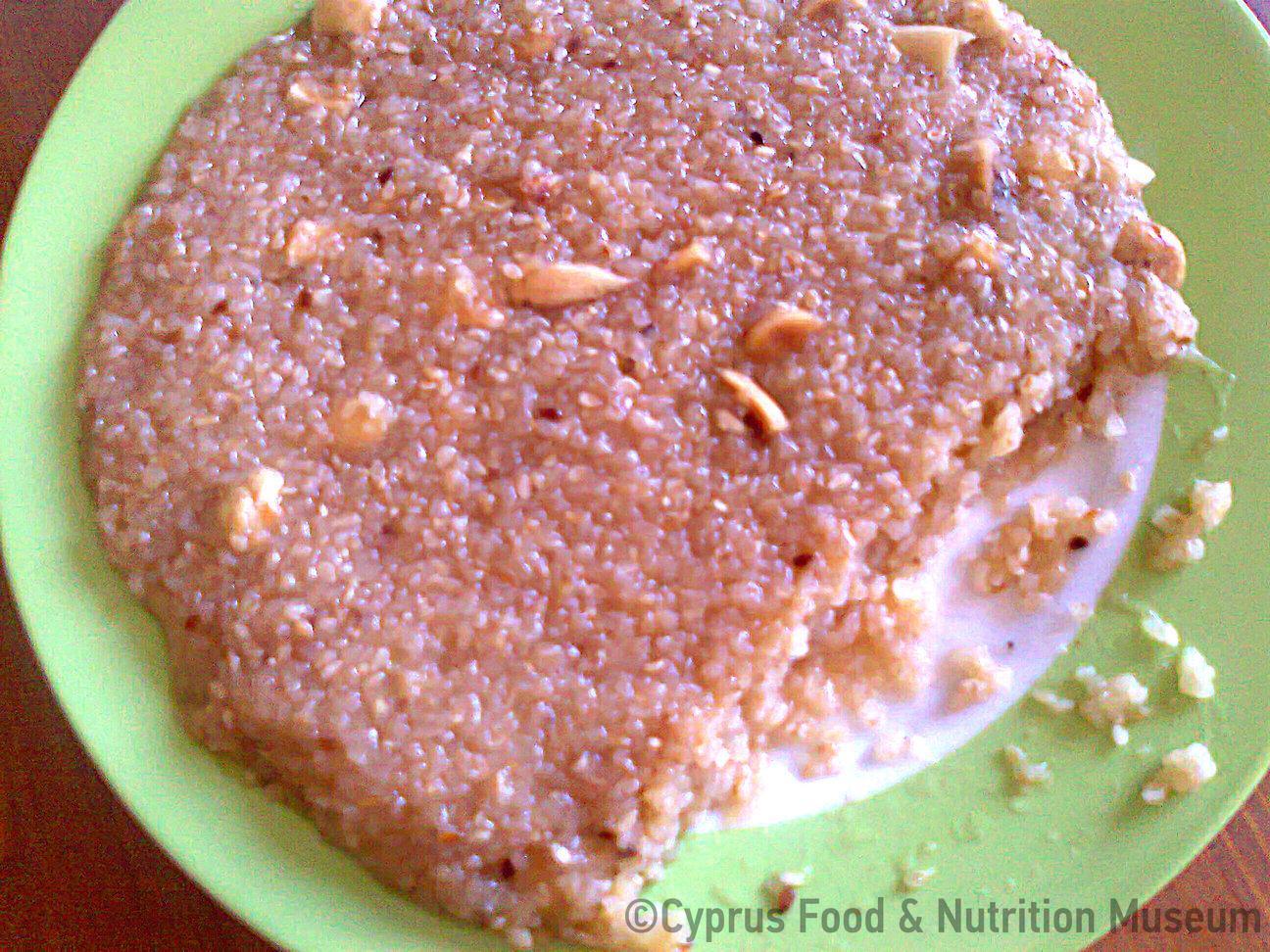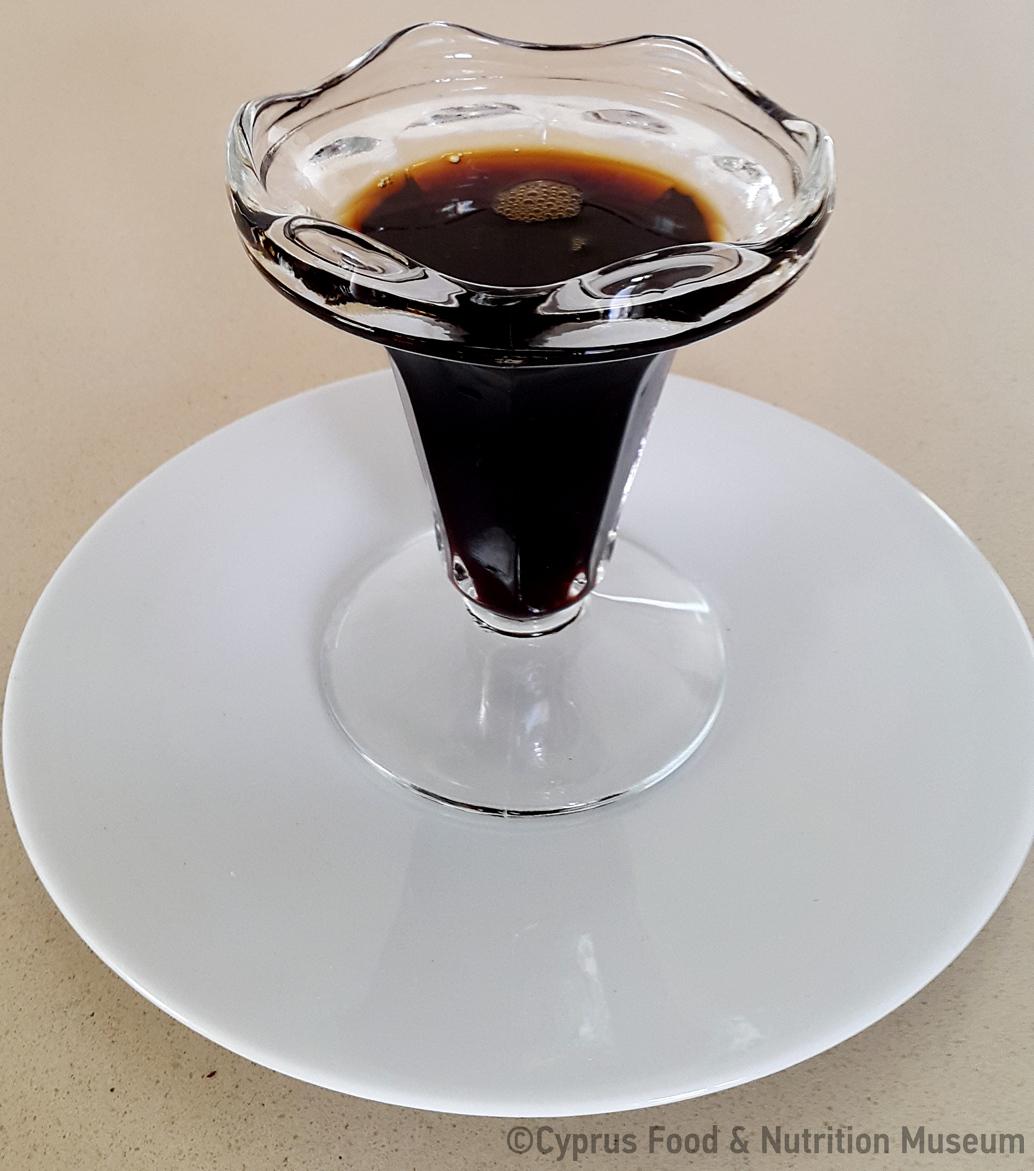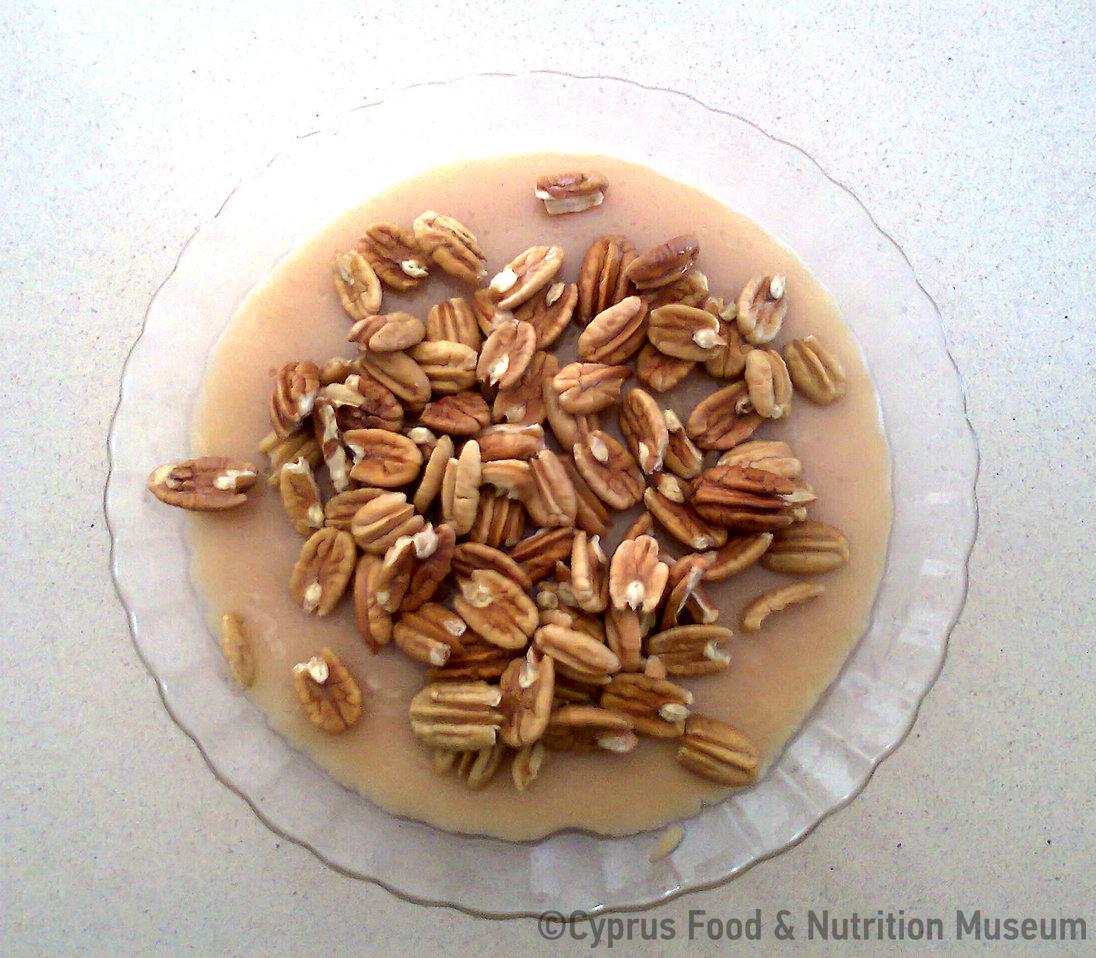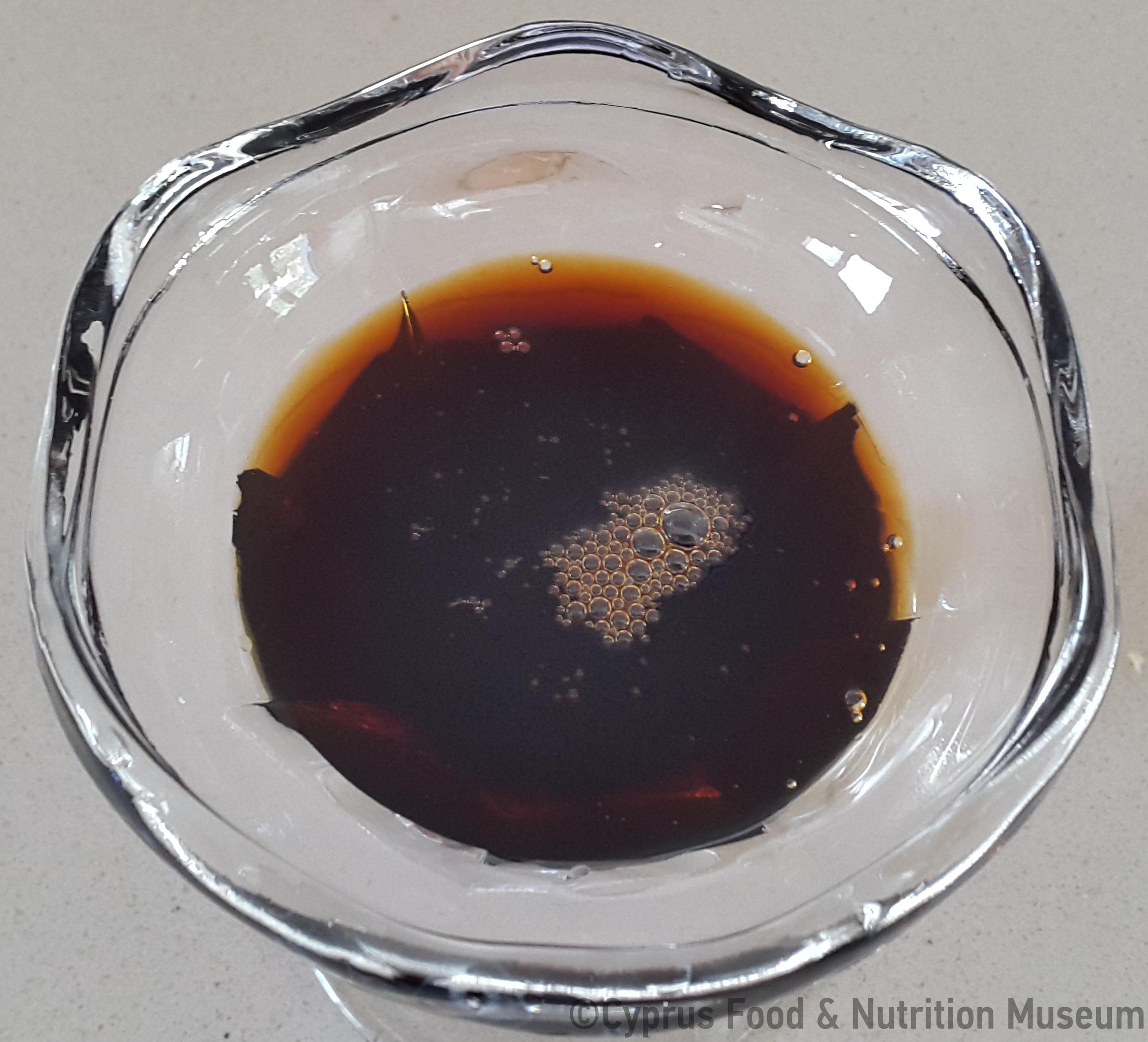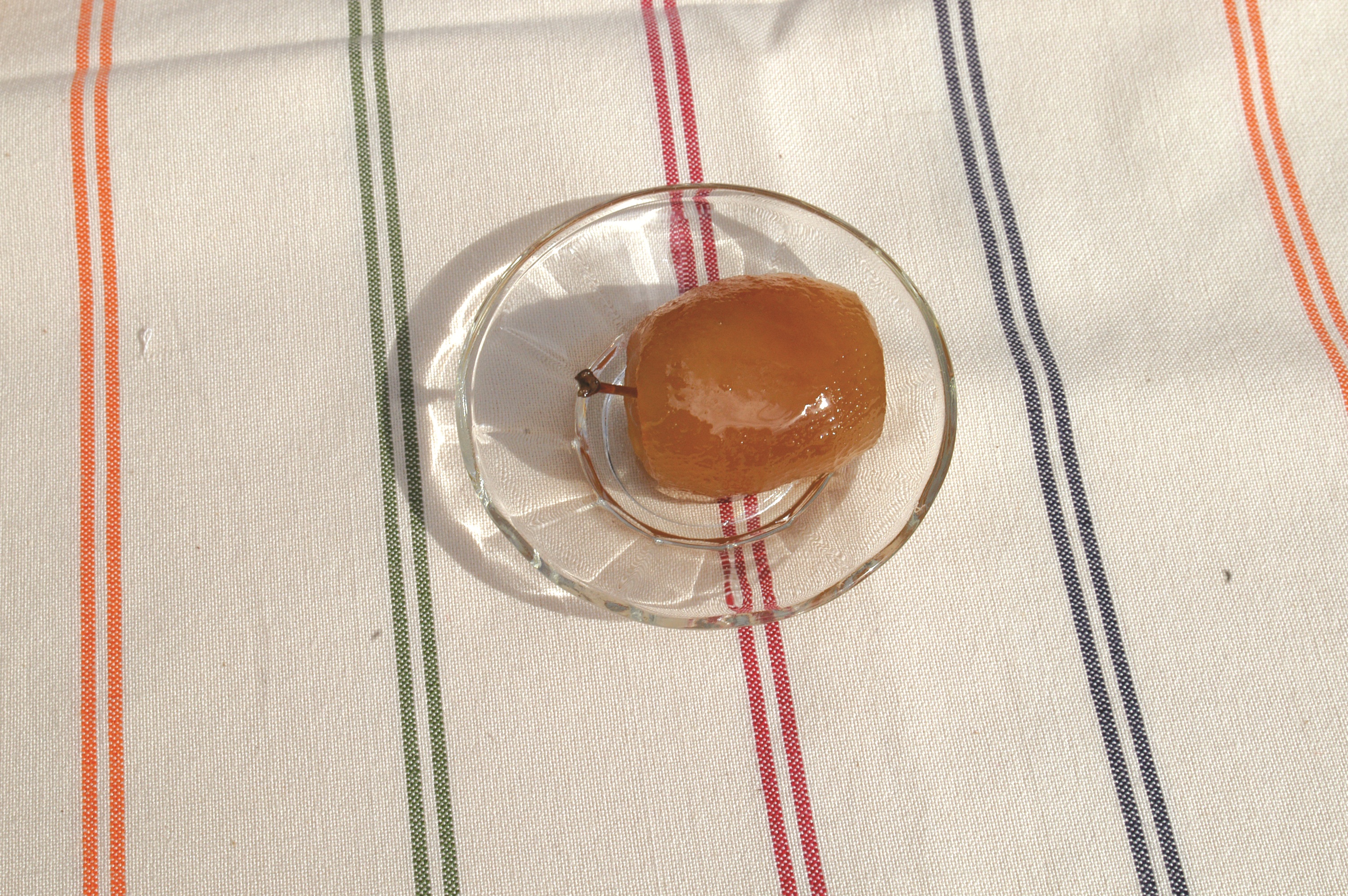Traditional Recipes
A sweet delicacy of modern times. The mixture of orange juice and sliced apples is boiled, then thickened with the addition of sugar.
Traditional Recipes
Dark coloured thick syrup, ”honey" with a sweet and sour taste. Prepared from grape must by prolonged boiling, without prior fermentation, until it becomes dark and syrupy. Used as a sugar substitute…
Traditional Recipes
The juice of orange, tangerine, grape or other fruit is used, along with a bit of sugar. The sugar that is added serves to preserve the aroma, colour and flavour of the juice.
Traditional Recipes
"Make the syrup with 1 glass of sugar and 2 glasses of water. Pour it into the bottles. Seal the bottles tightly and place them in a pot with water to boil for 10 minutes." (Eleni Savva, Kyperounda)
Traditional Recipes
Peach compote is prepared using the same method as that of the apple and cherry compote.
Traditional Recipes
A sweet pie with an apple, cinnamon, sugar and rosewater filling.
Traditional Recipes
Moustari is used to prepare traditional sweets, such as ppalouzes, shoushoukkos, poltos and kkiofterka.
Traditional Recipes
A sweet pulp made from boiled grape must, coarsely ground wheat and sesame.
Traditional Recipes
Epsima is made after continuous boiling of the must, i.e. the juice of grapes. Wheat is boiled in this syrup until the mixture thickens and a pulp is formed.
Foods
A thin cream made from reduced grape must and flour.
Traditional Recipes
A thin cream made of reduced grape must bound with flour. When ppalouzés is cut into pieces and dried in the sun, we get ‘kkioftérka’ (kioftéria).
Traditional Recipes
This recipe uses apples or quinces which are prepared using grape must as a sweetener and originates from Marathasa valley.
Traditional Recipes
The recipe for apple spoon sweet from Kyperounda village calls for apples that are not too small, and if possible of the same size. Kyperounda is particularly famous for the production of spoon…
Foods
Originally, these products were the farmers' essential dry food during the working day. Later, they were consumed by all as a dessert or treat.

